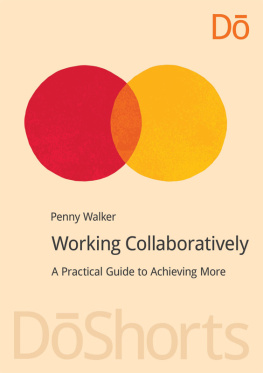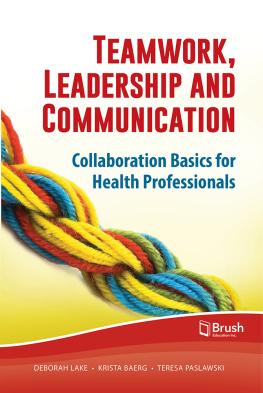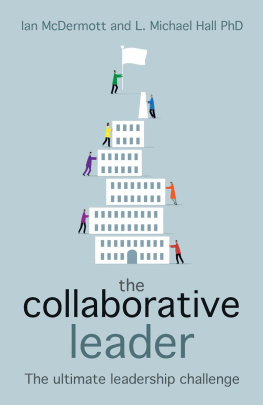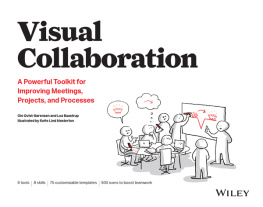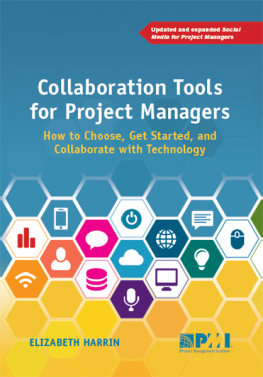First published in 2013 by D Sustainability
87 Lonsdale Road, Oxford OX2 7ET, UK
Copyright 2013 Penny Walker
The moral right of the author has been asserted.
All rights reserved. No part of this publication may be reproduced, stored in a retrieval system, or transmitted, in any form or by any means, electronic, mechanical, photocopying, recording or otherwise, except as expressly permitted by law, without the prior, written permission of the publisher.
ISBN 978-1-909293-61-8 (eBook-ePub)
ISBN 978-1-909293-62-5 (eBook-PDF)
ISBN 978-1-909293-60-1 (Paperback)
A catalogue record for this title is available from the British Library.
D Sustainability strives for net positive social and environmental impact. See our sustainability policy at www.dosustainability.com .
Page design and typesetting by Alison Rayner
Cover by Becky Chilcott
For further information on D Sustainability, visit our website:
www.dosustainability.com
D Sustainability is the publisher of DShorts: short, high-value ebooks that distil sustainability best practice and business insights for busy, results-driven professionals. Each DShort can be read in 90 minutes.
New and forthcoming DShorts stay up to date
We publish 3 to 5 new DShorts each month. The best way to keep up to date? Sign up to our short, monthly newsletter. Go to www.dosustainability.com/newsletter , or click here to sign up to the D Newsletter . Some of our latest and forthcoming titles include:
- Making the Most of Standards Adrian Henriques
- How to Account for Sustainability: A Business Guide to Measuring and Managing Laura Musikanski
- Sustainability in the Public Sector: An Essential Briefing for Stakeholders Sonja Powell
- Sustainability Reporting for SMEs: Competitive Advantage Through Transparency Elaine Cohen
- REDD+ and Business Sustainability: A Guide to ReversingDeforestation for Forward Thinking Companies Brian McFarland
- How Gamification Can Help Your Business Engage in Sustainability Paula Owen
- Sustainable Energy Options for Business Philip Wolfe
- Adapting to Climate Change: 2.0 Enterprise Risk Management Mark Trexler & Laura Kosloff
- How to Engage Youth to Drive Corporate Responsbility: Roles and Interventions Nicol Wojewoda
- The Short Guide to Sustainable Investing Cary Krosinsky
- Strategic Sustainability: Why it Matters to Your Business and How to Make it Happen Alexandra McKay
- Sustainability Decoded: How to Unlock Profit Through the Value Chain Laura Musikanski
Subscriptions
In addition to individual sales of our ebooks, we now offer subscriptions. Access 60+ ebooks for the price of 5 with a personal subscription to our full e-library. Institutional subscriptions are also available for your staff or students. Visit
Write for us, or suggest a DShort
Please visit www.dosustainability.com for our full publishing programme. If you dont find what you need, write for us! Or suggest a DShort on our website. We look forward to hearing from you.
Abstract
SOME OF OUR BIGGEST CHALLENGES cannot be solved by one organisation or even one sector acting alone. They demand simultaneous, coordinated action by players with different interests and skills. We need to work collaboratively to sort them. And we can!
In this DShort, Penny Walker takes you through the early steps you need to take to identify likely collaborators, find the common ground and work out how youll work together.
Youll also hear the inside story from international multi-sector collaborations like the Sustainable Shipping Initiative as well as examples of local cooperation to protect water sources and businesses working together to promote leadership on climate change.
Practical tools include:
- Stakeholder analysis
- Collaborative advantage
- Honest brokers and organic leaders
- Techniques for finding shared outcomes and gauging how much support there is for them
There are case studies, frameworks, insights and tips from people who have built successful collaborations, all packed into a 90 minute read.
Jump in and see where it takes you!
About the Author
PENNY WALKER is an independent consultant and has been helping people work towards a more sustainable society for over twenty years, collaborating with people to help them both learn about change and sustainability, and to support them in making a difference.
This work has included projects with Unilever, Greenpeace, the Environment Agency and DECC. She also worked at Friends of the Earth for eight years. She is a Senior Associate of the Cambridge Programme for Sustainability Leadership and an Affiliate of Forum for the Future. She is a director of InterAct Networks, building public sector capacity for stakeholder engagement and collaboration.
Her widely-praised and accessible book, Change Management for Sustainable Development a workbook, was published in 2006. She blogs at penny-walker.co.uk/blog
Penny also chairs the award-winning social enterprise Growing Communities ( www.growingcommunities.org ), a literally ground-breaking social enterprise growing and trading food. She lives in North London with her husband, two children and a vegetable garden.
Acknowledgments
THIS BOOK HAS DRAWN ON HELP, ideas, experiences and opportunities offered by an appropriately large number of people: Andrew Acland, Cath Beaver, Craig Bennett, Fiona Bowles, Cath Brooks, Signe Bruun Jensen, Ken Caplan, Niamh Carey, Lindsey Colbourne, Stephanie Draper, Lindsay Evans, James Farrell, Chris Grieve, Michael Guthrie, Charlotte Millar, Paula Orr, Helena Poldervaart, Chris Pomfret, Jonathon Porritt, Keith Richards, Clare Twigger-Ross, Neil Verlander, Lynn Wetenhall; others at the Environment Agency; people who have been involved in the piloting of the Catchment Based Approach in England in particular in the Lower Lee, Tidal Thames and Brent; and others who joined in with an InterAct Networks peer learning day on collaboration; and the anonymous reviewers who gave their feedback with no chance of acknowledgement. Thanks to all of you for your help. Any mistakes, of course, remain mine.
Contents
Collaborate to work jointly on an activity or project
from Latin col - together + laborare to work
OXFORD ENGLISH DICTIONARY
CHAPTER 1
Start At The End What
WHAT DO YOU WANT TO ACHIEVE?
A cure for cancer?
World peace?
Lets zoom in a bit to something more realistic. What about:
- Keeping the rise in global average temperature to below 2 degrees C?
- Halving the proportion of people whose income is less than $1.25 a day?
- All water bodies in a particular catchment having a healthy natural species range and abundance of plants, invertebrates and fish?
- A circular economy?
- Protecting and maintaining the ecosystems services provided in a particular area?
These are all classic wicked problems: complex, systemic, with lots of uncertainty and no clear solutions that do not also have downsides for some people (Rittel and Webber, 1973). Problems like maintaining ecosystem services or limiting global temperature rises, embody the Tragedy of the Commons (Hardin, 1968): a common resource will be exploited, perfectly rationally, by each individual who has access to it, until it crashes. Sustainable use of a common resource will only come with active management of access to that resource. (Another solution is to privatise it: pretty hard with the atmosphere.)

